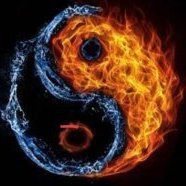-
Recently Browsing 0 members
- No registered users viewing this page.
Announcements
-
Topics
-
Latest posts...
-
39
Teamsters’ Neutral Stance: A Blow to Harris and a Challenge for Trump
Well that doesn't say much for the "poorly educated" supporters of the convicted felon. Read and weep........ Asked if he would “commit to prioritizing legislation to make child care affordable” and “what specific piece of legislation” he would support during a Q&A session at the Economic Club of New York Thursday, Trump said:……. “Well, I would do that, and we’re sitting down. You know, I was somebody — we had, Senator Marco Rubio, and my daughter Ivanka, was so impactful on that issue. It’s a very important issue. "But I think when you talk about the kind of numbers that I’m talking about — that, because look, child care is child care, couldn’t — you know, there’s something — you have to have it in this country. You have to have it. But when you talk about those numbers, compared to the kind of numbers that I’m talking about by taxing foreign nations at levels that they’re not used to. But they’ll get used to it very quickly. And it’s not going to stop them from doing business with us. But they’ll have a very substantial tax when they send product into our country. Those numbers are so much bigger than any numbers that we’re talking about, including child care, that it’s going to take care. We’re going to have — I look forward to having no deficits within a fairly short period of time, coupled with the reductions that I told you about on waste and fraud and all of the other things that are going on in our country. "Because I have to stay with child care. I want to stay with child care. But those numbers are small relative to the kind of economic numbers that I’m talking about, including growth, but growth also headed up by what the plan is that I just — that I just told you about. We’re going to be taking in trillions of dollars. And as much as child care is talked about as being expensive, it’s, relatively speaking, not very expensive compared to the kind of numbers will be taking in. "We’re going to make this into an incredible country that can afford to take care of its people. And then we’ll worry about the rest of the world. Let’s help other people. But we’re going to take care of our country first. This is about America first. It’s about make America great again. We have to do it because right now, we’re a failing nation. So we’ll take care of it. Thank you. Very good question. Thank you.” “Somewhere in that incoherent word salad was a claim that the proposed tariffs could both balance the budget and pay for free child care across the country, which is of course mathematically absurd,” said Brian Riedl, an economic policy expert with the conservative Manhattan Institute and a former policy adviser to prominent Republicans. “Trump sounded like the student who hadn’t studied for the test and was making up numbers.” In short the orange man is duimb -
38
What is this cap on floodlight?
I have three, all bought from Homeworks Pattaya at least 12 years ago, so not quite 70's vintage. -
340
Revisiting History: The Unlikely Campaign to Vilify Winston Churchill
The quote does not claim that the British practiced carpet bombing in the Middle East before 1937? I didn't realise you have problems reading, Brian. Lol. -
65
Do you owe money?
Just because I can borrow money, doesn’t mean I do. -
109
Aussies now need an ETA to enter Thailand
When I flew to the US several years ago as a guest speaker at a convention I had my tickets etc, had asked if anything else was needed and told no, Upon arriving at check in I was asled for my esta, I told them I was not told about it but they said without I could not fly and directed me to an internet lounge where I could apply for one online. Up until that stage I was not informed it was necessary by anyone and I had asked the US consulate and they didnt tell me it was needed. I can see a lot of problems with this knowing how bad Thailand is at online services and lack of response when asking questions, they will certainly need to improve on their current abilities to make it work properly and to not have so many system breakdowns as they do currently -
1,378
5 year multiple entry DTV visa (Destination Thailand) from 2024-xx-xx
It was a change across the board in January. I went in asking what I needed in Dec. I went back in January with the necessaries, and they said they could no longer do it. My visa was long term ED visa thru language school. They said they only accept UNIVERSITY based ED visa any longer. I tried every bank, and a couple different branches and managers with no luck. ONLY one that would possibly do anything was BKK, but I had one with them alreaady and they would not let me open another even though it was a different branch. There was one that offered me one if purchased Thai life insurance, but my GF is cambodian so neither of us qualified. -
340
Revisiting History: The Unlikely Campaign to Vilify Winston Churchill
Upper Silesia was of course another travesty, with the Treaty of Versailles calling for a plebiscite, then when the majority voted to remain in Germany rather than honour the plebiscite result instead Upper Silesia being carved up. Not on voting lines either, cities where the vast majority had voted for Germany (32 of 35 cities voted to be part of Germany) fell to Poland and so did 2/3 of industrial territory and 4//5 of natural resources. Not that Poland was able to do much with it in the 40 years that followed, but that was the reality. The British and French had supported this carving up of Germany purely for their own policy reasons, as they thought it would facilitate weakening Germany. In reality it faciliated Adolf Hitler. In particular the Upper Silesia plebiscite was a major grievance in Germany which led to the rise of the far right. -
29
Common reporting standard (CRS) information
My point is TRD has no reach outside of Thailand (unless criminal case + international warrant), so any well written piece of paper is an uncontested proof. But of course there's always the "at their discretion" that makes law and rules pointless. -
38
What is this cap on floodlight?
btw, that picture is from an internet site selling old stuff. Vintage (1970's) Italian garden light, GBP 214. How many you got? -
38
What is this cap on floodlight?
There's a red dot on the cap which can possibly be punched out to allow a tighter fit for the cable. Thanks, I think that answers my question.- 1
-

-
3
Anyone know how to direct the smart TV to use a VPN?
The problem is that your phone (with VPN running) is on a different network than your TV. The phone is on a network outside of your home LAN, while your TV is on your home LAN. In this situation, you cannot cast from your phone running a VPN to your TV. So you have a few options... run a VPN on the TV attach a streaming device to your TV (HDMI) and run the VPN, and channel sources, on that device (Chromecast for example) create a VPN LAN on your router, and attach both your phone and TV to that VPN LAN. It would help if you could share exactly what you have...network and devices, and what it is you're trying to do (specific example). -
2
Work Truck Overturns in Chonburi, Injuring Multiple Workers
Amateurs. The US military can fit an entire platoon, with gear, in a single cattle car. Do better, Thailand! -
0
Vibrant Atmosphere at 'Bangkok Car Free 2024'
The bustling Banthat Thong Road was transformed into a colourful pedestrian-friendly zone for the "Bangkok Car Free 2024" event. On September 21, Deputy Governor of Bangkok, Sanon Wangsrangboon, joined cyclists and local artists in painting the road, creating a lively and creative atmosphere. Accompanying him were Tosak Chotimongkol, Chief Advisor to the Bangkok Governor, Ekwaranyu Amrapal, Assistant Secretary to the Governor and spokesperson, and Professor Dr. Wilert Phuriwat, Acting President of Chulalongkorn University, alongside officials from the Department of Traffic and Transportation and Pathumwan District Office. The event was organised in collaboration with Chulalongkorn University, highlighting Banthat Thong Road's popularity among locals and tourists for its famous eateries. However, the road's heavy foot traffic had made it difficult for pedestrians to walk safely. The Car Free Day event aimed to improve the safety and accessibility of the road, making it more pedestrian-friendly, including enhancing facilities for wheelchair users. The day's activities saw wide community participation, with involvement from groups such as Chulalongkorn University, the Bangkok Bicycle Alliance, and the Thai Walking and Cycling Institute Foundation. Participants painted the street near Soi Chula 16 and decorated it with street furniture, creating inviting spaces for relaxation. The event also embraced the concept of "tactical urbanism," a community-driven approach to urban development, giving people a chance to redesign the sidewalks and public spaces. "Bangkok Car Free 2024: Connecting For Life" was part of a global movement celebrated annually on September 22, encouraging citizens to reduce private vehicle usage in favor of public transportation, bicycles, and walking. The goal is to raise awareness about air pollution, decrease traffic congestion, and improve the quality of life in densely populated urban areas. Bangkok's participation was part of a worldwide effort to reclaim streets for pedestrians and promote sustainable urban living. The event took place on Banthat Thong Road from 16:00 to 24:00, transforming the car-dominated street into a vibrant space for people to enjoy and connect. -- 2024-09-22 -
122
Stealing a Federal Election
Trump said that voting by mail = fraud. However, in2020 the most voting by mail was done in Florida... Trump won there. And 'Stop the Steal' was already organized by Roger Stone in 2016 (before the elections), but obviously wasn't launched because Trump won. https://edition.cnn.com/2020/11/13/business/stop-the-steal-disinformation-campaign-invs/index.html Trump = Fraud -
-
.png.3b3332cc2256ad0edbc2fe9404feeef0.png)












Recommended Posts
Create an account or sign in to comment
You need to be a member in order to leave a comment
Create an account
Sign up for a new account in our community. It's easy!
Register a new accountSign in
Already have an account? Sign in here.
Sign In Now